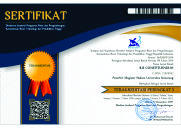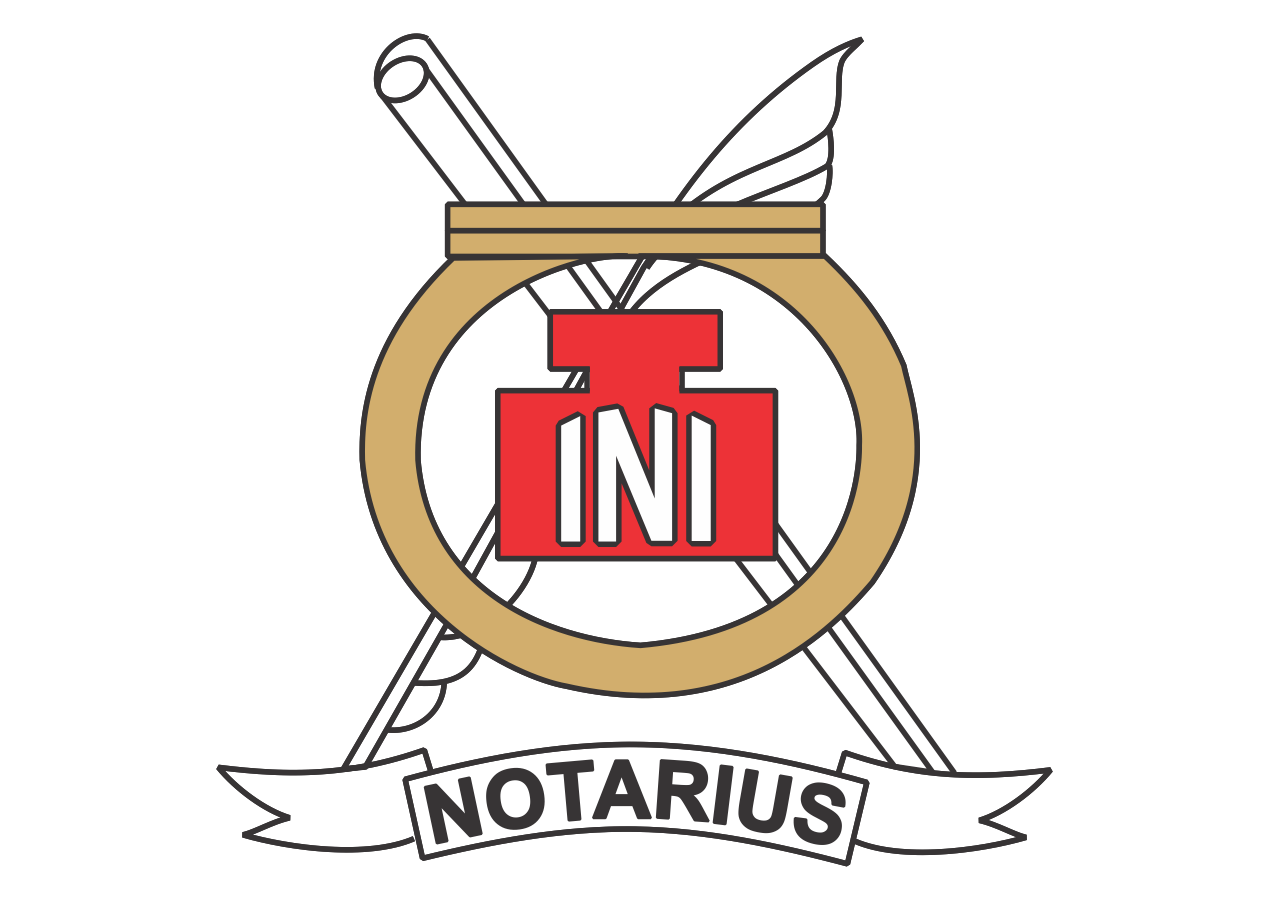The application of Cyber Notary in Indonesia
Abstract
The aim of this research is to analyze cyber notary practices in civil law countries and the nature of cyber notary in terms of evidentiary value. This research needs to be conducted due to technological developments and their relation to notary practices using cyber notaries. This research is carried out using a normative legal method by studying the regulations that apply in notarial practice with the aim of seeking legal proceedings based on positive law, supported by legal regulations regarding the position of notaries and legal regulations regarding legal matters. formal and transactional electronic, and the results of the legal experts can provide an overview of the requirements that apply in notary cyber practices. The civil law system places authentic deeds as perfect evidence because they are made based on legal regulations, where notaries, as public officials, have the authority to carry out the task of making deeds. In the development of technology, many developments have occurred in the legal system, especially regarding the leeway of notaries, which has created opportunities for notary cyber concepts. The potential for notary cyber in Indonesia needs to be considered, bearing in mind that there is not yet a legal umbrella that directly regulates notary cyber in the execution of autenik deeds that have an impact on evidence. The value of proof of an authentic deed in the notary cyber concept cannot yet be put into practice because the law on the position of notary does not yet accommodate this provision, remembering that the preparation of an authentic deed must comply with the applicable provisions in order to have authentic value.
Keywords
Full Text:
PDFReferences
Abdillah, Satrio, Norhasliza Ghapa, and Maheran Makhtar. “A Comparative Study Between Indonesia and Malaysia on the Role of Notaries and Advocates.” Jurnal USM Law Review 6, no. 3 (2023): 943. https://doi.org/10.26623/julr.v6i3.7853.
Adjie, Habib. Kebatalan Dan Pembatalan Akta Notaris. Bandung: PT.Refika Aditama, 2013.
Amalia, Aisyah, and Widhi Handoko. “Peluang Penerapan Cyber Notary Di Indonesia.” Notarius 15, no. 2 (2022): 616–25. https://doi.org/10.14710/nts.v15i2.36030.
Amiruddin, Zainal Asikin. Pengantar Metode Penelitian Hukum. Jakarta: Rajawali Pers, 2014.
Apriani, Nabilah, and Ridwan Wijayanto Said. “Upaya Perlindungan Hukum Terhadap Industri Usaha Mikro Kecil Dan Menengah (UMKM) Di Indonesia.” Jurnal Al Azhar Indonesia Seri Ilmu Sosial 3, no. 1 (2022): 28. https://doi.org/10.36722/jaiss.v3i1.1069.
Benny. “Penerapan Konsep Cyber Notary Di Indonesia Ditinjau Dari Undang-Undang Nomor 2 Tahun 2014.” Premise Law Journal 5, no. 5 (2015). https://talenta.usu.ac.id/index/login?source=%2Findex.php%2Fpremise%2Farticle%2Fview%2F9751%2F4269.
Chastra, Deny Fernaldi. “Kepastian Hukum Cyber Notary Dalam Kaidah Pembuatan Akta Autentik Oleh Notaris Berdasarkan Undang-Undang Jabatan Notaris.” Indonesian Notary 3, no. 17 (2021): 246–67. https://scholarhub.ui.ac.id/notary/vol3/iss2/17/.
Dini Sukma Listyana, Ismi Ambar Wati, Lisnawati. “Kekuatan Pembuktian Tanda Tangan Elektronik Sebagai Alat Bukti Yang Sah Dalam Perspektif Hukum Acara Di Indonesia Dan Belanda.” Jurnal Verstek 2, no. 2 (2014): 146–54. https://doi.org/https://doi.org/10.20961/jv.v2i2.38859.
Efa Laela Fakhriah. Bukti Elektronik Dalam Sistem Pembuktian Perdata. Bandung: Refika Aditama, 2017.
Elnizar, Norman Edwin. “W.Hukumonline.Com/Berita/a/Yuk--Pahami-Konsep-Notaris-Dalam-Civil-Law-Dan-Common-Law-Lt59d9f5002c20c.,” 2022. https://www.hukumonline.com/berita/a/yuk--pahami-konsep-notaris-dalam-civil-law-dan-common-law-lt59d9f5002c20c.
Fardhian. “Legalisasi Dokumen Publik Dan Transaksi Elektronik.” LKHT, 2014.
Friko Rumadanu, Esther Masri, and Otih Handayani. “Penggunaan Cyber Notary Pada Akta Autentik Dan Kekuatan Pembuktiannya Dalam Perspektif Undang-Undang Jabatan Notaris.” Krtha Bhayangkara 16, no. 1 (2022): 89–100. https://doi.org/10.31599/krtha.v16i1.1032.
Habib Adjie & Muhammad Hafidh. Akta Notaris Untuk Perbankan Syariah. Jakarta: PT Citra Aditya Bakti, 2017.
Hasnati Hasnati, Puti Mayang Seruni. “Consumer’s Personal Data Protection in the Digital Era.” Jurnal Ius Constituendum 9, no. 1 (2024): 20–35. https://doi.org/http://dx.doi.org/10.26623/jic.v9i1.8061.
Intan Nur Baiti and Siti Malikhatun Badriyah. “Urgensi Dan Penerapan Konsep Cyber Notary Di Masa Pandemi Covid-19.” Notarius 16, no. 1 (2023). https://doi.org/10.14710/nts.v16i1.40910.
Junita Faulina, Abdul Halim Barkatullah & Djoni S. Gozali. “Kedudukan Akta Notaris Yang Menerapkan Konsep Cyber Notary Di Masa Pandemi Covid-19 Di Indonesia.” Nolaj 1, no. 3 (2022) https://doi.org/10.32801/nolaj.v1i3.28.
Makarim, Edmon. Notaris Dan Transaksi Elektronik, Kajian Hukum Tentang Cybernotary Atau Electronic Notary. Jakarta: Rajawali Pers, 2013.
Marlin, Simon Reinaldo, and Mohamad Fajri Mekka Putra. “Pentingnya Penerapan Cyber Notary Sebagai Upaya Terciptanya Keamanan Praktik Bisnis Di Indonesia.” JISIP (Jurnal Ilmu Sosial Dan Pendidikan) 6, no. 3 (2022). https://doi.org/10.58258/jisip.v6i3.3369.
Melia Putri Purnama Sari. “Urgensi Pembuatan Postnuptial Agreement Dalam Bentuk Akta Pihak Sebagai Probationis Causa Berdasarkan Kebenaran Formil.” PALAR (Pakuan Law Review) 09, no. September (2018): 1–23. https://doi.org/10.33751/palar.v9i3.
Muhammad Abdoel Aziz. “Peran Notaris Dalam Perlindungan Data Pribadi,” 2020.
Ni’mah Sona, Mahfuzatun. “Penerapan Cyber Notary Di Indonesia Dan Kedudukan Hukum Akta Notaris Yang Bebasis Cyber Notary.” Jurnal Officium Notarium 2, no. 3 (2022): 497–505. https://doi.org/10.20885/jon.vol2.iss3.art12.
Nola, Luthvi Febryka. “Peluang Penerapan Cyber Notary Dalam Peraturan Perundang-Undangan Di Indonesia.” Negara Hukum 2, no. 1 (2011): 75–102. https://doi.org/10.22212/jnh.v2i1.187.
Norman Edwin Elnizar. “Konsep Notaris Dalam Civil Law Dan Common Law.” Hukum Online, 2022.
R. Subekti. Hukum Pembuktian. Jakarta: Pradnya Paramita, 2008.
Renata Christha Auli. “6 Sistem Hukum Yang Berlaku Di Dunia.” Hukum Online, 2022.
Rizqi, Fadhila, and Siti Nurul Intan Sari D. “Implementasi Cyber Notary Di Indonesia Ditinjau Dalam Upaya Reformasi Birokrasi Era 4.0.” Jurnal Hukum Dan Kenotariatan 5, no. 1 (2021): 37. https://doi.org/10.33474/hukeno.v5i1.9391.
Rossalina, Zainatun., Bakri, Moh., & Andrijani, Itta. “Keabsahan Akta Notaris Yang Menggunakan Cyber Notary Sebagai Akta Autentik.” E-Jurnal Pascasarjana Fakultas Hukum Universitas Brawijaya 1, no. 2 (2017). http://hukum.studentjournal.ub.ac.id/index.php/hukum/article/view/1554.
Sudikno Mertokusumo. Hukum Acara Perdata Indonesia. Yogjakarta: Liberty, 2006.
Syahrani, Riduan. Hukum Acara Perdata Di Lingkungan Peradilan Umum. Jakarta: Pustaka Karini, 1988.
Taufik Makarao. Pokok-Pokok Hukum Acara Perdata. Jakarta: Rineka Cipta, 2004.
DOI: http://dx.doi.org/10.26623/jic.v9i1.8129
Refbacks
- There are currently no refbacks.
Copyright (c) 2024 Jurnal Ius Constituendum

This work is licensed under a Creative Commons Attribution 4.0 International License.






Jurnal Ius Constituendum : Journal Law by Program Studi Magister Hukum Universitas Semarang is licensed under a Creative Commons Attribution 4.0 International License.











